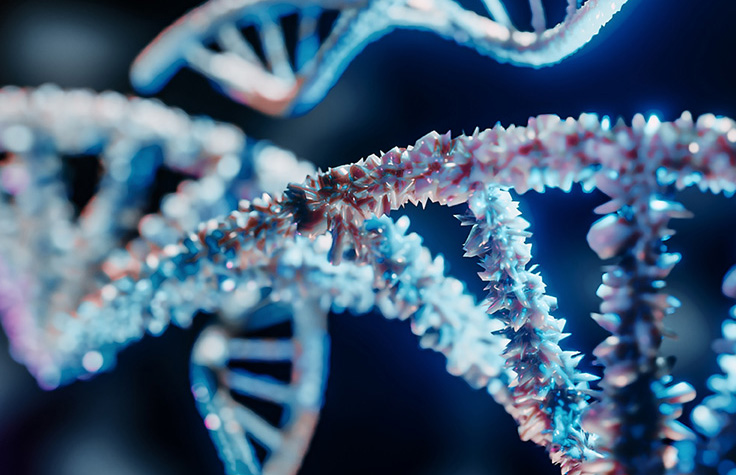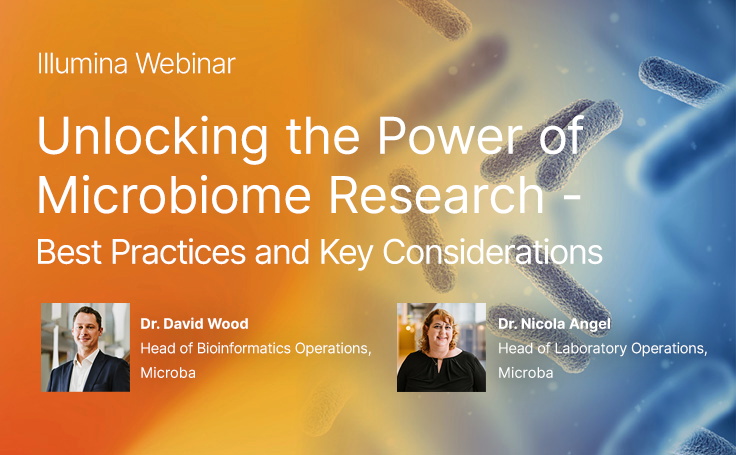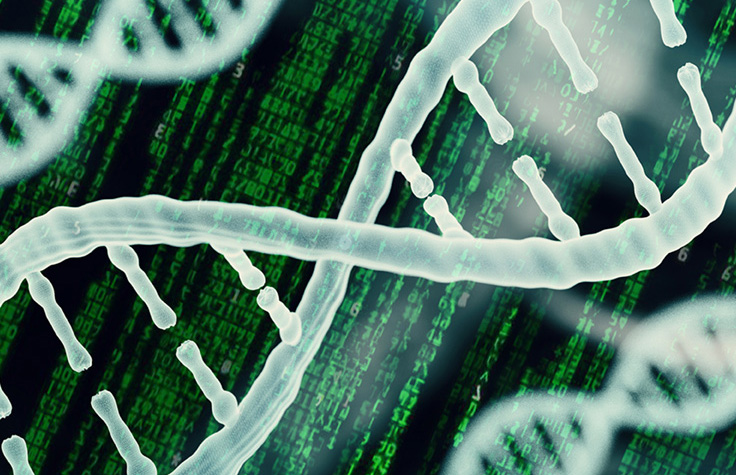At Illumina, we’re committed to unlocking the power of the genome to aid the human condition. And we’re committed to unlocking the power of the human microbiome to enhance our understanding of human disease.
Microbiome studies are rapidly advancing our understanding of the microbial communities that inhabit our gut, in our mouths and on our skin. However, the analysis of microbiome data can be challenging due to the vast complexity and diversity of these communities. To achieve reliable and informative results, it is crucial to carefully consider several key steps to get the most out of your microbiome samples.
Across the world, scientists are using many technologies for studying the human microbiome. Shotgun metagenomic sequencing provides the best high-resolution ‘blueprint’ of what species are present in a sample and what functions they can perform, making it an important measurement in microbiome analysis. Metagenomics with Illumina’s NGS technology enables the identification of new species that may play an important role in disease but are likely overlooked by older sequencing techniques. This has dramatically changed our understanding of the integral role of the microbiome in human health, including how the microbiome keeps us healthy or how changes in the composition of a microbiome are associated with disease.
Unlocking the Power of Microbiome Research
- Best Practices and Key Considerations
In our coming webinar and new article series below, we share our best advice and essential considerations for getting high-quality metagenomics data for your microbiome study – including best practices for sample collection, sequencing techniques, and data analysis through advanced bioinformatics.
The three key things you'll learn in this webinar are:
- To share best practices for sample collection, sequencing techniques, and data analysis through advanced bioinformatics.
- To provide insights into how to maximize accuracy and reliability of microbiome data.
- To communicate valuable experiences that can be applied to your own research

The importance of sample collection and other sources of variability for high-quality data in microbiome research
Considering sources of variation in microbiome research cannot be overstated. Understanding the sources of variation that can impact microbiome data is crucial to accurately interpreting the results of microbiome studies.

Top tips for optimizing NGS library preparation for microbiome analysis
The success of NGS library preparation for microbiome analysis is highly dependent on several critical factors that must be carefully optimized. Here are some top tips for optimizing NGS library preparation for microbiome analysis.


